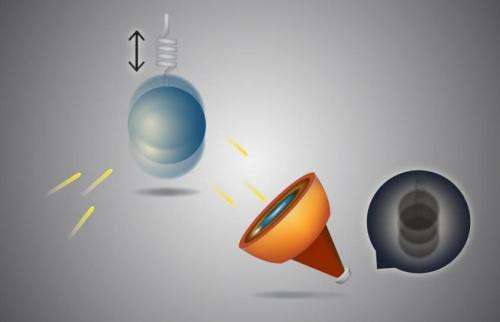June 30, 2014 report
Best of Last Week – speed of light may be wrong, fungus fights resistant bacteria and link between pesticides and autism

(Phys.org) —Last week saw the physics community buzzing as a physicist suggested that the speed of light might be slower than thought—James Franson of the University of Maryland posted an article in a peer-review journal putting forth the idea that the speed of light might be slower than we think due to vacuum polarization. If he's right, it's going to mean a lot of upheaval for astrophysics in the coming years. Also, a team of physicists find way to boot up quantum computers 72 times faster than previously possible. They found a way to use an engineering algorithm to greatly reduce the set-up time for daily recalibrations needed for quantum computers.
Another pair of physicists at King's College in London wonder should the Higgs boson have caused our Universe to collapse? They suggest observations by researchers with the BICEP2 collaboration last March show that we shouldn't have been around to observe what occurred, thus something new must be present. Another team of physicists at the University of California built an experiment with not much force: Researchers detect smallest force ever measured—their laser and trapping system based on optics detected a force not much above the Standard Quantum Limit.
Also, after recent revelations regarding the speed at which bacteria develop resistance to antibacterial agents, welcome news comes as a team unearths what may be a secret weapon against antibiotic resistance—a soil fungus found in Nova Scotia. It's effective against New Delhi Metallo-beta-Lactamase-1—one of the most dangerous antibiotic-resistance bacteria out there. In other news from the biological community, pesticides threaten birds and bees alike, study says—by a Task Force advising the International Union for Conservation of Nature—it's the same chemicals that are believed to be responsible for killing bees all over the world.
Technologists have kept busy as well, as news of a robot valet to park cars at German airport has been making waves. Also, a team in the U.K. has announced: Hydrogen breakthrough could be a game-changer for the future of car fuels—they're found a way to store the fuel in a safer way by using ammonia as an energy source.
And finally, good news on the medical front, as a study finds association between maternal exposure to agricultural pesticides and autism. They found that pregnant women living near farms that use pesticides have a 2/3 increase in chance of having a baby that develops the disorder. Finding the source, is of course, the key to prevention.
© 2014 Phys.org





















